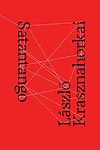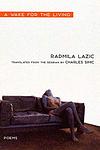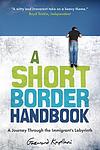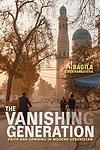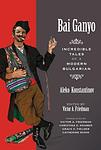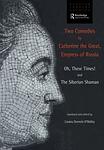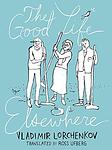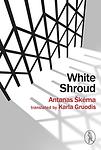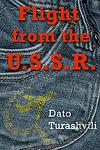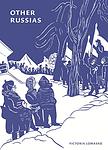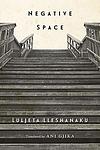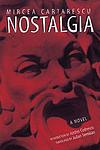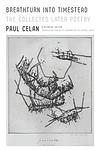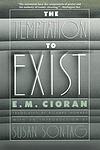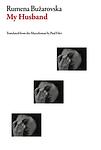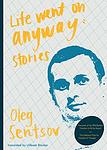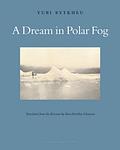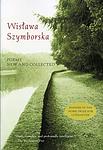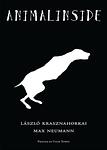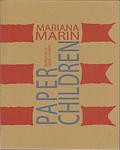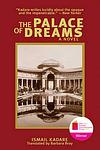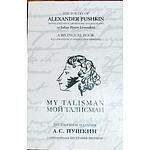100 Books to Read from Eastern Europe and Central Asia
This is one of the 284 lists we use to generate our main The Greatest Books list.
-
Soul and Other Stories by Andrey Platonov
"Soul and Other Stories" is a collection of short stories that delve into the human condition and the struggle for identity in a world filled with political and social upheaval. The stories are set in a variety of contexts, from the harsh landscapes of Central Asia to the chaos of the Russian Revolution. The characters are often faced with existential crises, grappling with questions of purpose, meaning, and morality. The narrative is marked by a unique blend of philosophical inquiry, poetic prose, and a deep sense of empathy for the human plight.
-
Satantango by László Krasznahorkai
"Satantango" is a bleak and atmospheric novel set in a small Hungarian village, where a group of desperate and disillusioned characters become entangled in a web of deception, corruption, and despair. As they navigate through the decaying landscape and their own inner demons, the novel explores themes of power, greed, and the human capacity for both cruelty and redemption. With its rich prose and intricate storytelling, "Satantango" offers a haunting and thought-provoking reflection on the human condition.
-
The Unwomanly Face Of War by Svetlana Alexievich
"The Unwomanly Face Of War" is a powerful and poignant collection of interviews with Soviet women who fought in World War II. Through their testimonies, the author sheds light on the often overlooked and untold stories of these brave women who served as snipers, pilots, nurses, and soldiers on the front lines. The book explores their experiences, sacrifices, and the lasting impact of war on their lives, providing a unique and intimate perspective on the realities of war from a female point of view.
-
The Complete Fiction Of Bruno Schulz: The Street Of Crocodiles, Sanatorium Under The Sign Of The Hourglass by Bruno Schulz
"The Complete Fiction of Bruno Schulz: The Street of Crocodiles, Sanatorium Under the Sign of the Hourglass" is a collection of two surreal and imaginative novellas by Bruno Schulz. In "The Street of Crocodiles," the narrator explores his childhood memories in a bustling town filled with eccentric characters and enchanting events. In "Sanatorium Under the Sign of the Hourglass," the protagonist finds himself in a peculiar sanatorium where time seems to stand still, leading to a series of dreamlike encounters and introspective musings. Schulz's unique writing style and vivid descriptions create a captivating reading experience that blurs the line between reality and fantasy.
-
F Letter: New Russian Feminist Poetry by Galina Rymbu, Eugene Ostashevsky, Ainsley Morse
"F Letter: New Russian Feminist Poetry" is a captivating collection of contemporary Russian feminist poetry that challenges societal norms and explores themes of gender, identity, and power. Through the powerful and thought-provoking verses of Galina Rymbu, Eugene Ostashevsky, and Ainsley Morse, this anthology sheds light on the experiences and perspectives of women in Russia, offering a unique and refreshing voice in the world of literature.
-
Carbide by Andriy Lyubka
In this thought-provoking novel, "Carbide" explores the complex dynamics of power, corruption, and the human condition. Set in a dystopian society, the story follows a young protagonist who becomes entangled in a dangerous game of political intrigue. As he navigates through the treacherous landscape, he discovers shocking truths about the ruling elite and the lengths they will go to maintain their control. With its compelling narrative and vivid imagery, "Carbide" delves into the dark underbelly of society, challenging readers to question their own beliefs and the nature of power.
-
The Ministry Of Pain by Dubravka Ugrešić
"The Ministry of Pain" is a powerful and introspective novel that follows the life of Tanja Lucić, a Croatian immigrant and former professor of literature, as she navigates the challenges of living in exile in Amsterdam. Through Tanja's perspective, the book explores themes of loss, displacement, and the struggle to preserve one's identity in a foreign land. With a blend of dark humor and poignant observations, the author delves into the complexities of memory, trauma, and the enduring pain of war, offering a profound exploration of the human condition.
-
The Silent Steppe: The Story Of A Kazakh Nomad Under Stalin by Mukhamet Shayakhmetov
"The Silent Steppe: The Story Of A Kazakh Nomad Under Stalin" is a gripping memoir that chronicles the life of a Kazakh nomad during the brutal reign of Stalin. The book offers a firsthand account of the hardships, persecution, and forced collectivization experienced by the Kazakh people under Soviet rule. Through the eyes of the author, readers gain insight into the resilience, traditions, and struggles of the Kazakh nomadic culture in the face of political oppression.
-
I Served The King Of England by Bohumil Hrabal
"I Served The King Of England" is a captivating novel that follows the life of a young Czech waiter named Ditie, who dreams of becoming a millionaire and serving the highest-ranking clientele. Set against the backdrop of World War II and the Communist regime, the story takes readers on a journey through Ditie's experiences in various hotels and restaurants, his encounters with eccentric characters, and his pursuit of love and success. With humor, wit, and a touch of satire, the book explores themes of ambition, identity, and the impact of historical events on an individual's life.
-
The Bridge on the Drina by Ivo Andrić
"The Bridge on the Drina" is a historical novel that spans four centuries, highlighting the lives and experiences of the inhabitants of a small town in Bosnia. The narrative revolves around a stone bridge, which serves as a symbol of unity and continuity. The book explores the impact of the Ottoman Empire, the Austro-Hungarian Empire, and the onset of World War I on the multicultural community living in the town, capturing the changes, conflicts, and resilience of the people and their cultures.
-
The Eighth Life by Nino Haratishvili
"The Eighth Life" is an epic family saga that spans over a century, tracing the lives of a Georgian family through the tumultuous history of the Soviet Union. Beginning with the story of a young woman who escapes the Bolshevik Revolution, the novel delves into the lives of subsequent generations as they navigate through love, loss, and the enduring legacy of their family. With richly drawn characters and a captivating narrative, this book explores themes of identity, sacrifice, and the power of storytelling.
-
Klotsvog by Margarita Khemlin
"Klotsvog" is a poignant and introspective novel that follows the life of Maya Abramovna Klotsvog, a Jewish woman living in Soviet Russia during the 20th century. Through Maya's perspective, the book explores themes of identity, love, and the struggles faced by Jews in a society plagued by anti-Semitism. With a blend of humor and tragedy, the story delves into Maya's personal relationships, her experiences as a mother and wife, and her resilience in the face of adversity. Ultimately, "Klotsvog" is a profound exploration of one woman's journey through life and her unwavering spirit in the midst of societal challenges.
-
A Wake For The Living by Radmila Lazić
"A Wake For The Living" is a thought-provoking novel that delves into the complex web of personal and political conflicts in a war-torn country. Set against the backdrop of the Balkan War, the story follows a diverse group of characters who are forced to confront their pasts and navigate the aftermath of violence and loss. Through vivid storytelling and rich character development, the author explores themes of identity, forgiveness, and the enduring power of hope in the face of adversity.
-
A Short Border Handbook by Gazmend Kapllani
"A Short Border Handbook" is a poignant and thought-provoking memoir that follows the journey of a young Albanian man who leaves his homeland to seek a better life in Greece. Through a series of vivid and often humorous anecdotes, the author explores themes of identity, belonging, and the complexities of borders, both physical and metaphorical. With a mix of personal experiences and historical context, this book offers a unique perspective on the challenges and triumphs of immigration, ultimately revealing the universal human desire for freedom and acceptance.
-
Memoirs Of A Revolutionist by Vera Figner
"Memoirs of a Revolutionist" is a captivating autobiography that chronicles the life of a remarkable woman, detailing her journey from a privileged upbringing to becoming a prominent figure in the Russian revolutionary movement. Through her personal experiences and reflections, the author provides a vivid account of the political and social upheaval in 19th-century Russia, shedding light on the struggles, sacrifices, and triumphs of those dedicated to the cause of revolution. This thought-provoking memoir offers valuable insights into the complexities of revolution and the indomitable spirit of those who fight for change.
-
The Vanishing Generation: Faith And Uprising In Modern Uzbekistan by Bagila Bukharbayeva
"The Vanishing Generation: Faith And Uprising In Modern Uzbekistan" explores the complex relationship between faith, politics, and social change in contemporary Uzbekistan. Through in-depth interviews and extensive research, the author delves into the lives of young Uzbeks who are navigating the challenges of religious identity, political repression, and the desire for societal transformation. This thought-provoking book sheds light on the struggles and aspirations of a generation caught between tradition and modernity in a rapidly changing society.
-
Trans Atlantyk by Witold Gombrowicz
"Trans Atlantyk" is a semi-autobiographical novel that explores the author's experiences as a Polish writer living in Argentina during World War II. The book delves into themes of identity, language, and cultural displacement, as the protagonist navigates the challenges of being an outsider in a foreign land. With a blend of humor and introspection, the novel offers a unique perspective on the complexities of exile and the struggle to maintain a sense of self in unfamiliar surroundings.
-
Journal, 1935 44 by Mihail Sebastian
"Journal, 1935-44" is a captivating collection of diary entries written by an insightful and introspective individual named Mihail Sebastian. Spanning almost a decade, the journal provides a unique glimpse into the author's personal thoughts, experiences, and observations during a tumultuous period in history. Through his poignant reflections, Sebastian explores themes of identity, love, politics, and the human condition, offering readers a profound and thought-provoking journey through his inner world.
-
The Bedbug And Selected Poetry by Vladimir Mayakovsky
"The Bedbug And Selected Poetry" is a collection of poems by Vladimir Mayakovsky, a prominent Russian poet of the early 20th century. The book features a mix of Mayakovsky's avant-garde and politically charged works, showcasing his unique style and themes of revolution, love, and the struggles of the working class. Through his powerful and dynamic verses, Mayakovsky offers readers a glimpse into the social and cultural landscape of his time, while leaving a lasting impact with his thought-provoking and emotive poetry.
-
Evenings On A Farm Near Dikanka by Nikolai Gogol
"Evenings On A Farm Near Dikanka" is a collection of short stories that take place in a small Ukrainian village. The stories are filled with folklore, supernatural elements, and humorous anecdotes, depicting the lives and adventures of the villagers. Through vivid descriptions and lively characters, the book offers a glimpse into rural life in 19th-century Ukraine, blending reality with fantasy in a captivating and entertaining manner.
-
My Name Is Aram by William Saroyan
"My Name Is Aram" is a collection of short stories narrated by a young Armenian boy living in Fresno, California, in the early 20th century. The stories depict the boy's experiences and interactions with his eccentric and often comical relatives and neighbors. The tales are filled with humor, warmth, and wisdom, providing a charming and insightful look into the lives of Armenian immigrants in America during this time period.
-
Walker On Water by Kristiina Ehin
"Walker On Water" is a captivating novel that follows the journey of a young woman named Walker, who embarks on a transformative adventure across the vast oceans. Filled with poetic prose and vivid imagery, the book explores themes of self-discovery, love, and the power of nature as Walker navigates through both literal and metaphorical storms. Along the way, she encounters a diverse array of characters and experiences, each contributing to her personal growth and understanding of the world. Through Ehin's beautiful storytelling, "Walker On Water" offers a poignant exploration of the human spirit and the profound connections we can forge with the elements around us.
-
Demons by Fyodor Dostoevsky
"The Possessed" is a complex political novel set in a provincial Russian town, exploring the destructive influence of radical ideologies on society. The narrative revolves around a group of revolutionaries, their philosophical debates and their destructive actions, driven by nihilism and anarchism. The story is a critique of the political and social chaos of the time, showcasing the author's deep understanding of human psychology and his profound insights into the human condition. It is an exploration of faith, reason, and the nature of freedom and is considered one of the most significant works of Russian literature.
-
The Moscoviad by Yuri Andrukhovych
"The Moscoviad" is a satirical novel that follows the journey of a group of Ukrainian intellectuals as they embark on a chaotic and absurd trip to Moscow. Through a series of hilarious and bizarre encounters, the author explores the complex relationship between Ukraine and Russia, while also delving into the themes of identity, history, and cultural clashes. With its sharp wit and biting commentary, the novel offers a unique perspective on the post-Soviet era and the tensions between the two neighboring countries.
-
Of Strangers And Bees by Hamid Ismailov
"Of Strangers And Bees" is a captivating novel that delves into the life of a young woman named Nafisa, who finds herself torn between her traditional Uzbek upbringing and her desire for independence and self-discovery. Set against the backdrop of the Soviet Union's collapse, Nafisa's journey takes her through a series of encounters with strangers who challenge her perceptions and push her to question societal norms. With lyrical prose and vivid storytelling, the book explores themes of identity, love, and the complexities of navigating a rapidly changing world.
-
Bai Ganyo by Aleko Konstantinov
"Bai Ganyo" is a satirical novel that follows the eponymous protagonist, a comically boorish Bulgarian rose-oil merchant, as he travels through various European cities. The book humorously critiques the cultural misunderstandings and faux pas that Bai Ganyo commits, which serve as a metaphor for the broader social and political foibles of Bulgarians during the post-liberation period from Ottoman rule. Through a series of vignettes, the protagonist's adventures expose the clash between traditional Bulgarian ways and modern European society, ultimately offering a sharp commentary on the challenges of cultural integration and the preservation of national identity in the face of globalization.
-
The Natashas by Yelena Moskovich
"The Natashas" is a haunting and lyrical novel that weaves together the stories of three women: a young Russian prostitute searching for freedom, a French actress escaping her troubled past, and an American student seeking connection. Set against the backdrop of Paris, the book explores themes of identity, displacement, and the lengths people go to find themselves and their place in the world.
-
Oh, These Times by Catherine the Great
"Oh, These Times" is a poignant and introspective memoir that delves into the personal experiences and challenges faced by the author, Catherine the Great. Through her candid and insightful narrative, she explores the complexities of ruling a vast empire, navigating political intrigue, and the constant struggle to maintain power and influence. With a blend of wit, wisdom, and vulnerability, Catherine offers a unique perspective on the tumultuous times she lived in, shedding light on the intricacies of leadership and the human condition.
-
Quiet Flows The Una by Faruk Šehić
"Quiet Flows The Una" is a poignant and powerful novel that delves into the complexities of war and its lasting impact on individuals and communities. Set during the Bosnian War, the story follows a young soldier named Faruk, who finds solace in the beauty and tranquility of the Una River. As the war unfolds, Faruk's experiences and relationships are tested, and he is forced to confront the harrowing realities of violence and loss. Through vivid prose and introspective narration, the book explores themes of love, resilience, and the enduring human spirit in the face of adversity.
-
The Good Life Elsewhere by Vladimir Lorchenkov
"The Good Life Elsewhere" is a darkly humorous and satirical novel that follows a group of Moldovan villagers who embark on a chaotic journey to Italy in search of a better life. Through their misadventures, the author exposes the harsh realities of poverty, corruption, and the desperate measures people are willing to take in pursuit of a brighter future. With a blend of absurdity and poignant social commentary, the novel offers a compelling exploration of the human condition and the universal desire for a better life.
-
Medea And Her Children by Lyudmila Ulitskaya
"Medea And Her Children" by Lyudmila Ulitskaya is a powerful and emotionally charged novel that delves into the complex relationships between a mother and her children. Set in Soviet Russia, the story follows the lives of three generations of women as they navigate the challenges of love, sacrifice, and the oppressive political climate. Through vivid and compelling storytelling, Ulitskaya explores the universal themes of family, loyalty, and the enduring strength of a mother's love.
-
A Spare Life by Lidija Dimkovksa
"A Spare Life" is a poignant and thought-provoking novel that explores the lives of conjoined twin sisters, Zlata and Srebra, as they navigate the complexities of their shared existence in war-torn Macedonia. Told through the eyes of Zlata, the narrative delves into themes of identity, freedom, and the pursuit of individuality, as the sisters grapple with their physical and emotional bonds. With lyrical prose and a powerful portrayal of sisterly love, this novel offers a unique and compelling perspective on the human experience.
-
Zuleikha by Guzel Yakhina
"Zuleikha" is a captivating historical novel set in 1930s Soviet Union, following the life of Zuleikha, a Tatar woman who is forcefully taken from her home and exiled to Siberia. As she struggles to adapt to the harsh conditions of the remote village, Zuleikha finds solace in her resilience and the unexpected connections she forms with her fellow exiles. Through her journey of survival, love, and self-discovery, Zuleikha's story beautifully explores themes of identity, freedom, and the indomitable human spirit.
-
The Unbearable Lightness of Being by Milan Kundera
Set against the backdrop of the Prague Spring period of Czechoslovak history, the novel explores the philosophical concept of Nietzsche's eternal return through the intertwined lives of four characters: a womanizing surgeon, his intellectual wife, his naïve mistress, and her stoic lover. The narrative delves into their personal struggles with lightness and heaviness, freedom and fate, love and betrayal, and the complexities of human relationships, all while offering a profound meditation on the nature of existence and the paradoxes of life.
-
Out Of The Fire by Ales Adamovich, Yanka Bryl, Vladimir Kolesnik
"Out Of The Fire" is a powerful collection of stories that vividly depict the horrors and resilience of the human spirit during World War II. Through the eyes of various characters, the book explores the devastating impact of war on individuals and communities, capturing their struggles, sacrifices, and moments of hope amidst the chaos. With hauntingly beautiful prose, the authors bring to life the unimaginable atrocities of the war, reminding us of the importance of remembrance and the enduring strength of the human soul.
-
White Shroud by Antanas Škėma
"White Shroud" is a captivating and introspective novel that delves into the complex and fragmented mind of a Lithuanian immigrant living in Chicago during the 1950s. Through a series of disjointed narratives and poetic prose, the book explores themes of identity, cultural displacement, and the search for meaning in a foreign land. The protagonist's struggle to reconcile his past and present, along with his encounters with various characters, provides a thought-provoking exploration of the human condition and the universal quest for belonging.
-
The Zone by Sergei Dovlatov
"The Zone" is a semi-autobiographical novel that follows the life of a writer who is confined to a Soviet labor camp. Through a series of vignettes, the protagonist reflects on his experiences in the camp, the absurdities of the Soviet system, and the struggles of maintaining his identity and integrity in the face of oppression. With dark humor and sharp observations, the book offers a poignant and satirical portrayal of life in the Soviet Union.
-
A Tomb for Boris Davidovich by Danilo Kiš
"A Tomb for Boris Davidovich" is a collection of seven short stories exploring the nature of political and personal identity, primarily in Eastern Europe during the 20th century. The stories are interconnected, each focusing on a different character who is caught up in the political turmoil of the time, often meeting tragic ends. The book is known for its exploration of totalitarianism, the nature of identity, and the power of the state over the individual.
-
Fieldwork In Ukrainian Sex by Oksana Zabuzhko
"Fieldwork In Ukrainian Sex" is a provocative and introspective novel that delves into the complexities of identity, sexuality, and the power dynamics within relationships. Through the perspective of a young Ukrainian woman studying in America, the book explores themes of cultural clashes, personal discovery, and the search for one's own voice amidst societal expectations. With a blend of vivid storytelling and philosophical musings, the author challenges traditional norms and invites readers to question their own beliefs about love, desire, and the pursuit of happiness.
-
Natural Novel by Georgi Gospodinov
"Natural Novel" is a thought-provoking and imaginative work that seamlessly weaves together various narratives and perspectives. The book explores the concept of storytelling and its power to shape our understanding of reality. Through a blend of fiction, memoir, and philosophical musings, the author delves into the complexities of human existence, the interconnectedness of life, and the search for meaning in a world filled with both beauty and tragedy. With its poetic prose and profound insights, "Natural Novel" invites readers to contemplate the boundaries between truth and fiction, ultimately challenging conventional notions of storytelling.
-
The Diary Of A Gulag Prison Guard 1935 6 by Ivan Chistyakov
"The Diary Of A Gulag Prison Guard 1935-6" is a chilling and harrowing memoir that provides a firsthand account of the atrocities and cruelty witnessed by Ivan Chistyakov during his time as a guard in a Soviet Gulag prison. Through his detailed entries, Chistyakov reveals the dehumanizing conditions, brutal punishments, and constant fear that both prisoners and guards endured within the oppressive Soviet regime. This haunting narrative serves as a stark reminder of the dark realities of the Gulag system and the lasting impact it had on the lives of countless individuals.
-
The Harvest Of Chronos by Mojca Kumerdej
"The Harvest of Chronos" is a thought-provoking and immersive novel that delves into the complex themes of time, memory, and identity. Set in a small rural village, the story follows a young woman named Ana, who embarks on a journey to uncover the truth about her family's dark past. As she uncovers long-buried secrets and confronts her own demons, Ana grapples with the nature of time and its impact on personal and collective histories. With its lyrical prose and rich symbolism, this captivating novel explores the intricate connections between the past, present, and future, ultimately challenging readers to question the very essence of their existence.
-
Three Apples Fell From The Sky by Narine Abgaryan
"Three Apples Fell From The Sky" is a captivating novel that takes place in a remote Armenian village, where three eccentric characters embark on a journey of self-discovery. As they navigate the challenges of their small community, their lives intertwine in unexpected ways, revealing the power of love, resilience, and the enduring spirit of humanity. Through beautiful storytelling and vivid descriptions, the author explores themes of identity, belonging, and the importance of human connection in a changing world.
-
Imperium by Ryszard Kapuscinski
"Imperium" is a gripping account of the author's travels through the Soviet Union during the final years of its existence. With a keen eye for detail and a deep understanding of the complexities of power, the author delves into the lives of ordinary people and high-ranking officials alike, revealing the oppressive nature of the Soviet regime and the profound impact it had on the lives of its citizens. Through vivid descriptions and insightful observations, the book offers a compelling narrative that sheds light on the inner workings of a crumbling empire.
-
Voroshilovgrad by Serhiy Zhadan
"Voroshilovgrad" is a powerful novel set in post-Soviet Ukraine, following the lives of several characters who are grappling with the consequences of war, corruption, and economic decline. The story explores themes of identity, love, and the struggle to find meaning in a society that is rapidly changing. Through vivid and poetic prose, the author paints a haunting picture of a city and its inhabitants, capturing the complexities and contradictions of life in a country in transition.
-
Flight From The Ussr by Dato Turashvili
"Flight From The USSR" is a gripping and poignant memoir that follows the life of a young Georgian boy, who grows up under the oppressive regime of the Soviet Union. As he navigates the complexities of his turbulent homeland, the protagonist finds solace in his love for literature and dreams of escaping to the West. Faced with numerous challenges and heart-wrenching choices, he embarks on a daring journey that takes him across borders, revealing the resilience of the human spirit in the face of adversity.
-
There Once Lived A Woman Who Tried To Kill Her Neighbour’s Baby by Ludmila Petrushevskaya
In this collection of dark and haunting tales set in Soviet Russia, Ludmila Petrushevskaya explores the depths of human desperation and the complexities of human relationships. Through her vivid and evocative storytelling, she delves into the lives of ordinary individuals who are trapped in a web of loneliness, despair, and unfulfilled desires. With a blend of realism and the supernatural, Petrushevskaya crafts a mesmerizing narrative that exposes the raw emotions and hidden secrets that lie within the human heart.
-
Flights by Olga Tokarczuk
"Flights" is a fragmented and philosophical novel that explores the theme of travel and movement. Through a series of interconnected stories and reflections, the book delves into the nature of human existence, the complexities of modern life, and the desire for freedom and escape. With its poetic language and unconventional structure, "Flights" invites readers to contemplate the transient nature of time, the significance of journeys, and the search for meaning in a world constantly in motion.
-
The Master and Margarita by Mikhail Bulgakov
This novel is a complex narrative that weaves together three distinct yet intertwined stories. The first story is set in 1930s Moscow and follows the devil and his entourage as they wreak havoc on the city's literary elite. The second story is a historical narrative about Pontius Pilate and his role in the crucifixion of Jesus Christ. The third story is a love story between the titular Master, a writer who has been driven to madness by the criticism of his work, and his devoted lover, Margarita. The novel is a satirical critique of Soviet society, particularly the literary establishment, and its treatment of artists. It also explores themes of love, sacrifice, and the nature of good and evil.
-
Dervish And The Death by Meša Selimović
"Dervish and the Death" is a thought-provoking novel that delves into the complex themes of identity, morality, and the human condition. Set in the 18th century Ottoman Empire, the story follows a dervish, Sheikh Nuruddin, as he navigates the turbulent world of politics, power, and religion. Through his encounters with various characters, including the enigmatic Death, the dervish grapples with his own beliefs and questions the nature of existence. Selimovic's masterful storytelling and introspective prose make this novel a captivating exploration of life's fundamental questions.
-
Each Day Catches Fire by Imants Ziedonis
"Each Day Catches Fire" is a collection of poetry that explores the complexities of life and the human experience. Through vivid imagery and introspective reflections, the author delves into themes of love, loss, nature, and the passage of time. With lyrical language and thought-provoking metaphors, the poems in this book invite readers to contemplate the beauty and transience of existence.
-
Rock, Paper, Scissors And Other Stories by Maxim Osipov
"Rock, Paper, Scissors And Other Stories" is a collection of captivating short stories that delve into the lives of ordinary people in a small Russian town. Through these interconnected tales, the author explores themes of love, loss, and the complexities of human relationships. With a keen eye for detail and a deep understanding of the human condition, the stories in this book offer a poignant and thought-provoking glimpse into the lives of individuals navigating the challenges of modern-day Russia.
-
Night Circus And Other Stories by Ursula Kovalyk
"Night Circus and Other Stories" is a collection of interconnected tales that explore the lives of various characters in a small town. From a young girl's fascination with a mysterious circus to a woman's encounter with a peculiar stranger, each story delves into themes of love, loss, and the extraordinary moments that shape our lives. With lyrical prose and a touch of magical realism, the book invites readers to step into a world where the ordinary and the extraordinary collide, leaving a lasting impression on both the characters and the readers themselves.
-
Helping Verbs Of The Heart by Peter Esterhazy
"Helping Verbs Of The Heart" by Peter Esterhazy is a thought-provoking and introspective novel that delves into the complexities of love and relationships. Through a series of interconnected stories and characters, the book explores the various ways in which love can shape and define our lives. With lyrical prose and deep emotional insight, Esterhazy examines the power of love to both heal and wound, and ultimately leaves readers pondering the profound impact that love can have on the human heart.
-
Other Russias by Victoria Lomasko
"Other Russias" is a powerful and thought-provoking graphic novel that offers an intimate and unfiltered glimpse into the lives of marginalized individuals and communities in contemporary Russia. Through her stunning illustrations and poignant interviews, Victoria Lomasko sheds light on the struggles, hopes, and resilience of diverse groups such as LGBTQ+ activists, migrant workers, political dissidents, and the forgotten voices of rural communities. This eye-opening book challenges stereotypes and provides a humanizing portrayal of those who are often overlooked or silenced in Russian society.
-
Life Begins On Friday by Ioana Pârvulescu
"Life Begins On Friday" is a captivating novel set in 1897 Bucharest, Romania, where a crime takes place that remains unsolved for over a century. The story follows a journalist who becomes obsessed with unraveling the mystery, as he delves into the lives of the city's inhabitants and uncovers secrets and hidden connections. Through vivid descriptions and a rich historical backdrop, the novel explores themes of love, fate, and the complexities of human nature, ultimately offering a poignant reflection on the passage of time and the enduring power of storytelling.
-
The White Ship by Chinghiz Aitmatov
"The White Ship" by Chinghiz Aitmatov is a poignant and thought-provoking novella set in a remote village in Kyrgyzstan. The story follows a young shepherd named Mati, who embarks on a dangerous journey to rescue his fellow villagers after a devastating avalanche. Through Mati's experiences, the author explores themes of courage, sacrifice, and the resilience of the human spirit in the face of adversity. With beautiful prose and vivid descriptions, Aitmatov paints a vivid picture of the harsh yet enchanting landscapes of Kyrgyzstan while offering a powerful commentary on the strength of community bonds.
-
Negative Space by Luljeta Lleshanaku
"Negative Space" is a collection of poetry that delves into themes of loss, longing, and the complexities of human relationships. Through her precise and evocative language, the author explores the emptiness and absence that often define our lives, while also offering glimpses of hope and resilience. With introspective and thought-provoking verses, the book invites readers to reflect on the intricacies of existence and the profound impact of the spaces we leave behind.
-
The Captive Mind by Czesław Miłosz
"The Captive Mind" is a thought-provoking exploration of the intellectual and moral dilemmas faced by artists and intellectuals living under oppressive regimes. Through a series of powerful and insightful essays, the author delves into the psychological and ideological transformations experienced by individuals who compromise their values and conform to the demands of totalitarianism. With a blend of personal anecdotes, historical analysis, and philosophical reflections, this book offers a profound examination of the complexities of intellectual freedom and the power of ideology.
-
The Life Of Arseniev by Ivan Bunin
"The Life of Arseniev" is a poignant and introspective novel that explores the life of Arseniev, a middle-aged man grappling with the complexities of love, desire, and the passage of time. Set against the backdrop of pre-revolutionary Russia, the story delves into Arseniev's relationships with various women, his struggle to find meaning and fulfillment, and his eventual realization of the fleeting nature of human existence. With lyrical prose and a deep understanding of human emotions, the author captures the essence of a man's inner turmoil and the universal themes of love, loss, and self-discovery.
-
Nostalgia by Mircea Cărtărescu
"Nostalgia" is a collection of interconnected stories that explore themes of memory, desire, and the blurred boundaries between reality and imagination. Set in a surreal version of Bucharest, the book delves into the lives of various characters, including a young boy fascinated by his eccentric aunt, a man haunted by dreams of his childhood, and a woman searching for her lost lover. Through vivid and poetic prose, the author weaves together these narratives, creating a mesmerizing exploration of the human experience and the power of nostalgia.
-
Drive Your Plow Over the Bones of the Dead by Olga Tokarczuk
This novel centers around an eccentric woman living in a remote Polish village, who becomes embroiled in a series of mysterious deaths occurring in her community. As she investigates, she is drawn into a deeper exploration of nature, astrology, and the human psyche, all while navigating the dismissive attitudes of the local law enforcement. The narrative is a blend of dark comedy, philosophical inquiry, and mystery, with a strong underlying commentary on animal rights and environmentalism.
-
Alindarka’s Children by Alhierld Bakharevich
"Alindarka's Children" is a poignant and thought-provoking novel that delves into the lives of a group of orphaned children living in a remote village. Set against the backdrop of a war-torn country, the book explores themes of resilience, friendship, and the power of imagination. Through vivid storytelling and rich character development, the author paints a vivid picture of the children's struggles, their dreams, and their unwavering determination to find hope amidst the chaos.
-
Days In The Caucasus by Banine
"Days In The Caucasus" is a captivating memoir that follows the personal journey of a young woman living in the Caucasus region during the early 20th century. The author beautifully recounts her experiences growing up in a multicultural society, filled with vivid descriptions of the diverse landscapes, traditions, and people she encounters. From her childhood adventures to her first love, the author provides an intimate glimpse into a world on the brink of change, capturing both the joys and challenges of life in the Caucasus.
-
Odessa Stories by Isaac Babel
"Odessa Stories" is a collection of short stories set in the bustling city of Odessa, Ukraine, during the early 20th century. Through vivid and colorful characters, the book explores the vibrant and diverse Jewish community of Odessa, capturing their struggles, dreams, and everyday lives. With a blend of humor, tragedy, and satire, the stories paint a rich portrait of a city and its people, offering a unique glimpse into a bygone era.
-
Five Plays by Goran Stefanovski
"Five Plays" is a collection of thought-provoking and compelling plays that explore various themes such as love, power, identity, and societal issues. With a unique blend of humor, tragedy, and social commentary, the author delves into the complexities of human relationships and the struggles faced by individuals in a rapidly changing world. Each play offers a captivating narrative and rich character development, leaving readers with a profound reflection on the human condition.
-
Childe Harold Of Dysna by Moyshe Kulbak
"Childe Harold Of Dysna" is a compelling novel that delves into the life of a young Jewish man named Harold, who navigates the complexities of identity and belonging in a rapidly changing world. Set in the early 20th century, the story follows Harold's journey from his humble village of Dysna to the bustling city of Vilna, where he confronts anti-Semitism, cultural assimilation, and the allure of modernity. Through vivid prose and rich characterization, the author explores themes of love, loss, and the search for one's true self, painting a poignant portrait of a young man caught between tradition and progress.
-
The Mountain And The Wall by Alisa Ganieva
"The Mountain and the Wall" is a thought-provoking novel set in a fictional region of Russia, where a massive wall is being constructed to separate the Muslim population from the rest of the country. Through the eyes of various characters, the book explores the impact of this division on individuals and communities, delving into themes of identity, religion, and the struggle for freedom. As tensions rise and conflicts erupt, the story highlights the complexities of human relationships in a divided society.
-
Thank You For Not Reading by Dubravka Ugrešić
"Thank You For Not Reading" by Dubravka Ugrešić is a collection of essays that explores the decline of reading culture in contemporary society. Ugrešić delves into various aspects of this phenomenon, including the impact of technology, the rise of celebrity culture, and the commodification of literature. With her sharp and witty observations, she raises important questions about the future of reading and the value of literature in an increasingly digital and image-driven world.
-
The Lost Country by Luminița Cioabă
"The Lost Country" is a poignant and introspective novel that follows the journey of a young woman named Ana as she navigates the complexities of love, loss, and identity. Set against the backdrop of a politically tumultuous Romania, the story delves into Ana's search for her missing father, which ultimately leads her to confront her own past and confront the harsh realities of her country's history. With beautiful prose and a captivating narrative, the book explores themes of family, memory, and the enduring power of hope.
-
Russia Is Burning: Poems Of The Great Patriotic War by Maria Bloshteyn
"Russia Is Burning: Poems Of The Great Patriotic War" is a poignant collection of poems that captures the raw emotions and experiences of the Russian people during World War II. Through powerful and vivid imagery, the author delves into the devastating impact of the war on both soldiers and civilians, painting a haunting portrait of loss, resilience, and the indomitable spirit of the Russian people in the face of unimaginable suffering.
-
Dancing In Odessa by Ilya Kaminsky
"Dancing In Odessa" is a collection of poems that explores themes of love, loss, and identity through the lens of the author's experiences growing up in Odessa, Ukraine. With vivid imagery and lyrical language, the poems delve into the complexities of personal and cultural history, capturing the resilience and beauty of the human spirit in the face of adversity. Through its exploration of love and longing, the collection offers a poignant and evocative portrayal of the human condition.
-
On Sunday Morning She Gathered Herbs by Olha Kobylianska
"On Sunday Morning She Gathered Herbs" is a poignant and introspective novel that delves into the life of a young woman named Olena, who struggles against societal expectations and the constraints of her traditional upbringing. Set in a small Ukrainian village, the story follows Olena's journey of self-discovery and her pursuit of personal freedom, as she navigates the complexities of love, marriage, and the desire for independence. Through vivid descriptions and rich character development, the novel explores themes of identity, gender roles, and the clash between tradition and modernity in early 20th-century rural Ukraine.
-
Resurrection: A Novel by Leo Tolstoy
"Resurrection: A Novel" is a profound exploration of moral responsibility and the possibility of redemption. The story revolves around a nobleman who, in his youth, seduces and abandons a young servant girl. Years later, he encounters her as a prostitute on trial for murder. Overwhelmed by guilt for his role in her downfall, he decides to atone for his sins by dedicating himself to her defense and rehabilitation. The novel grapples with themes of morality, justice, and the human capacity for change.
-
Notes From The Blockade by Lydia Ginzburg
"Notes From The Blockade" is a poignant memoir that provides a firsthand account of life during the Siege of Leningrad in World War II. The author, Lydia Ginzburg, vividly describes the hardships, hunger, and constant fear experienced by the city's residents, while also exploring the resilience and strength of the human spirit. Through her powerful narrative, Ginzburg offers a deeply personal and moving portrayal of survival amidst unimaginable circumstances.
-
The King Of The Rattling Spirits by Miha Mazzini
"The King Of The Rattling Spirits" is a captivating and thought-provoking novel that follows the life of a young boy named Tomaz as he navigates the complexities of growing up in a small Slovenian village. Set against the backdrop of the socialist regime in the 1980s, the story delves into themes of family, identity, and the power of imagination. Tomaz's vivid dreams and encounters with supernatural beings provide a unique perspective on the challenges and opportunities that arise in his quest for self-discovery. With its richly drawn characters and evocative prose, this book offers a compelling exploration of the human spirit and the resilience of the human soul.
-
The Life Written By Himself by the Archpriest Avvakum
"The Life Written By Himself" is an autobiographical account by the Archpriest Avvakum, detailing his life as a religious figure in 17th-century Russia. The book chronicles his struggles, including his conflicts with the Russian Orthodox Church, his imprisonment, and his eventual execution. Avvakum's narrative provides a unique perspective on the religious and political climate of the time, showcasing his unwavering devotion to his faith and his unwavering determination to uphold his beliefs, even in the face of persecution.
-
Memory Rose Into Threshold Speech: The Collected Earlier Poetry by Paul Celan
"Memory Rose Into Threshold Speech: The Collected Earlier Poetry" is a compilation of the early poetry works of Paul Celan. The book delves into themes of memory, language, and the human experience, showcasing Celan's unique style and exploration of complex emotions. Through his powerful and evocative language, Celan invites readers to reflect on the profound impact of memory and the transformative power of words.
-
Panorama by Dušan Šarotar
"Panorama" is a poignant and introspective novel that delves into the complex themes of identity, memory, and belonging. Set in a small Slovenian town, the story follows a nameless narrator as he embarks on a journey of self-discovery and reflection. Through vivid descriptions and lyrical prose, the book explores the interconnected lives of various characters, revealing their shared experiences and the universal struggles of human existence. With its evocative storytelling and profound exploration of the human condition, "Panorama" offers a thought-provoking and immersive reading experience.
-
One Day in the Life of Ivan Denisovich by Aleksandr Solzhenitsyn
This novel provides a detailed account of a single day in the life of a prisoner, Ivan Denisovich, in a Soviet labor camp in the 1950s. The narrative follows Ivan as he navigates the harsh realities of his daily routine, from the moment he wakes up to when he goes to bed. The book provides a stark portrayal of the brutality and inhumanity of the Soviet gulag system while also highlighting the resilience and dignity of the human spirit under such oppressive conditions.
-
The Snows Of Yesteryear by Gregor von Rezzori
"The Snows of Yesteryear" is a memoir that explores the author's complex and tumultuous upbringing in Eastern Europe during the early 20th century. Through a series of vivid and poignant anecdotes, the book delves into the author's personal experiences with war, displacement, and the collapse of the Austro-Hungarian Empire, offering a deeply introspective and nostalgic reflection on the fleeting nature of time and the enduring impact of one's past.
-
The Case of Comrade Tulayev by Victor Serge
"The Case of Comrade Tulayev" is a political novel set in the Stalinist era of the Soviet Union. The story begins with the murder of a high-ranking Soviet official, Comrade Tulayev, which sets off a series of events leading to the arrest and execution of innocent people. It provides an in-depth exploration of the paranoia, fear, and injustice that characterized Stalin's regime, showing the human cost of political purges and the absurdity of the bureaucratic system.
-
The Temptation To Exist by Emil Cioran
"The Temptation to Exist" is a philosophical work that explores the human condition and the inherent struggles of existence. The author delves into themes of nihilism, despair, and the search for meaning in a world filled with suffering. Through a series of thought-provoking essays, Cioran challenges traditional beliefs, questions the nature of reality, and reflects on the complexities of human existence, ultimately offering a bleak yet profound perspective on the human experience.
-
My Husband by Rumena Bužarovska
"My Husband" by Rumena Bužarovska is a collection of short stories that explores the complexities of relationships and the struggles of women in contemporary society. Through vivid and thought-provoking narratives, the book delves into themes of love, marriage, infidelity, and the challenges faced by women in a patriarchal society. With a sharp and insightful writing style, the author presents a nuanced portrayal of the human experience, capturing the intricacies of emotions and the often hidden desires and frustrations that shape our lives.
-
Life Went On Anyway by Oleg Sentsov
"Life Went On Anyway" is a powerful memoir that chronicles the life of Oleg Sentsov, a Ukrainian filmmaker who was wrongfully imprisoned by the Russian government. Through his vivid and poignant storytelling, Sentsov shares the harrowing details of his arrest, imprisonment, and the relentless fight for justice. Despite the unimaginable hardships he endures, Sentsov's resilient spirit shines through as he reflects on the power of art, the importance of freedom, and the indomitable human will to survive.
-
Hurramabad by Andrei Volos
"Hurramabad" is a gripping and thought-provoking novel set in contemporary Russia. The story follows the lives of three young men who find themselves entangled in a web of corruption, violence, and political intrigue in the city of Hurramabad. As they navigate through the complexities of power and loyalty, the characters are forced to confront their own moral dilemmas and make difficult choices that will shape their futures. With its vivid portrayal of a corrupt society and its exploration of themes such as friendship, love, and the pursuit of justice, "Hurramabad" offers a compelling and immersive reading experience.
-
A Dream In Polar Fog by Yuri Rytkheu
"A Dream In Polar Fog" is a captivating and poignant tale that follows the journey of John MacLennan, a Scottish whaler who becomes stranded in the Arctic. As he navigates the harsh and unforgiving landscape, MacLennan encounters the indigenous Chukchi people and forms a deep bond with a young Chukchi boy named Khariton. Through their shared experiences and cultural exchange, the novel explores themes of identity, survival, and the power of human connection amidst the backdrop of the Arctic wilderness.
-
Heirs To The Great Sinner Sheikh San’on by Erkin A’zam
"Heirs To The Great Sinner Sheikh San’on" is a gripping tale that follows the lives of the wealthy and powerful San’on family, who are faced with a sudden tragedy when their patriarch, Sheikh San’on, passes away unexpectedly. As the family gathers to mourn his loss, long-held secrets begin to unravel, revealing a web of deceit, betrayal, and forbidden love. Amidst the turmoil, the heirs to the San’on legacy must navigate their own personal struggles and confront the consequences of their family's dark past, ultimately questioning their own identities and the values they hold dear.
-
Shadows On The Tundra by Dalia Grinkevičiutė
"Shadows On The Tundra" is a powerful memoir that recounts the harrowing experiences of a young Lithuanian girl during World War II. Forced into a Soviet gulag in Siberia with her family, the author vividly describes the brutal conditions and the relentless struggle for survival. Through her resilient spirit and unwavering determination, she offers a poignant and haunting account of her time in the labor camp, shedding light on the lesser-known history of the Baltic states during the war.
-
Invitation To A Beheading by Vladimir Nabokov
"Invitation To A Beheading" is a surreal and philosophical novel that follows the life of Cincinnatus C., a man sentenced to death in a totalitarian society for his perceived crime of being different. As Cincinnatus awaits his execution, he navigates a bizarre and absurd world filled with strange characters, dreamlike sequences, and a constant questioning of reality. Through his introspective journey, the novel explores themes of identity, freedom, and the power of the individual against oppressive systems.
-
Tongue Set Free by Elias Canetti
"Tongue Set Free" is a captivating memoir that explores the author's personal journey of self-discovery and identity formation. Through vivid and introspective storytelling, the book delves into the complexities of Canetti's multicultural upbringing, his struggles with language and communication, and his quest for freedom and belonging. With poetic prose and profound insights, the author reflects on the power of words, the influence of cultural heritage, and the transformative nature of embracing one's true self.
-
The Crowned Wanderer by Rahim Esenov
"The Crowned Wanderer" is a captivating tale set in a fictional world where a young wanderer named Zahir embarks on a transformative journey. As he travels through enchanting landscapes and encounters diverse characters, Zahir learns profound lessons about love, loss, and the complexities of human nature. With poetic prose and rich imagery, the novel explores themes of self-discovery, destiny, and the eternal search for meaning.
-
Kolyma Stories by Varlam Shalamov
"Kolyma Stories" is a collection of short stories that vividly depict the harrowing experiences of prisoners in the Soviet Gulag during the Stalinist era. Written by Varlam Shalamov, a survivor of the Kolyma labor camps himself, the book offers a raw and unflinching portrayal of the inhumane conditions, extreme suffering, and moral degradation endured by the prisoners. Through his powerful and haunting narratives, Shalamov sheds light on the resilience of the human spirit and the indomitable will to survive amidst unimaginable cruelty.
-
Poems, New And Collected, 1957 1997 by Wislawa Szymborska
This book is a collection of poems written by Wislawa Szymborska from 1957 to 1997. The poems explore a wide range of topics, including love, death, nature, and the human experience. With her unique and thought-provoking style, Szymborska delves into the complexities of life, often with a touch of humor and irony. Through her powerful and evocative language, she invites readers to reflect on the profound and sometimes contradictory aspects of existence.
-
The Memoirs Of Princess Dashkova by Ekaterina Romanovna Dashkova
"The Memoirs of Princess Dashkova" is a captivating autobiography that chronicles the remarkable life of a prominent Russian noblewoman. From her privileged upbringing and close relationship with Catherine the Great to her influential role in the Russian Academy of Sciences, Dashkova's memoirs offer a unique perspective on the political and cultural landscape of 18th-century Russia. With wit, intelligence, and a strong sense of self, Dashkova's narrative sheds light on her personal triumphs, challenges, and the turbulent historical events that shaped her life.
-
Animalinside by László Krasznahorkai, Max Neumann
"Animalinside" is a haunting and surreal novella that delves into the mind of a narrator who becomes consumed by an animalistic alter ego. As the protagonist's thoughts and actions blur the line between human and animal, the narrative takes on a dark and disorienting tone, exploring themes of identity, violence, and the primal instincts that lie within us all. Through the collaboration of Krasznahorkai's mesmerizing prose and Neumann's striking illustrations, "Animalinside" offers a mesmerizing and thought-provoking exploration of the human psyche.
-
The Futurological Congress by Stanislaw Lem
In a dystopian future, the protagonist attends a scientific conference where he is exposed to a new hallucinogenic drug that transports him to a surreal and chaotic world. As he navigates through this bizarre reality, he becomes entangled in a conspiracy involving mind-altering technology, political manipulation, and the struggle for power. This satirical novel explores themes of reality, identity, and the dangers of unchecked technological advancements.
-
Paper Children by Mariana Marin
"Paper Children" is a heart-wrenching tale that follows the lives of three orphaned siblings as they navigate the harsh realities of living on the streets of a war-torn city. With their parents gone and no one to rely on, the children resort to selling handmade paper dolls to survive. As they face hunger, violence, and loss, their unbreakable bond and resilience become their only source of hope in a world that seems determined to break them. This poignant story explores themes of family, survival, and the indomitable spirit of children in the face of adversity.
-
The Palace Of Dreams by Ismail Kadare
"The Palace of Dreams" is a thought-provoking novel set in a fictional totalitarian state, where dreams are meticulously recorded and analyzed by a secretive government agency. Mark-Alem, a young clerk, finds himself entangled in the intricate web of the Palace of Dreams, as he is assigned to interpret dreams that could potentially influence the fate of the nation. As he navigates through a world filled with political intrigue and personal dilemmas, Mark-Alem is forced to question the nature of reality, the power of dreams, and the consequences of suppressing individuality in the pursuit of control.
-
The Poetry of Alexander Pushkin by Alexander Pushkin
This book is a compilation of the works of a renowned Russian poet, showcasing his lyrical genius and profound understanding of human emotions. The collection includes a variety of his poems, from love sonnets to narrative pieces, reflecting the poet's versatility and depth. His mastery of language and ability to capture the complexities of life and love make this collection a timeless piece of literature.
New East Digital Archive, 100 Books
Experimental fiction, literary classics, searing historical accounts, and forgotten memoirs: the breadth of literature from across the post-communist world — much of it still untranslated — stands as testament to centuries of human experience in a region marked by political turmoil and extraordinary resilience. We asked writers, poets, translators, and academics to help us pick 100 of the best books from Central and Eastern Europe, Russia, and Central Asia available in English. From Belgrade to Bishkek, these remarkable works of literature span across cultures, borders, and time.
Added 6 months ago.
This list has a weight of 76%. To learn more about what this means please visit the Rankings page.
Here is a list of what is decreasing the importance of this list:
- List: only covers 1 specific large geographical region (Asia, Latin America, etc)
- Voters: are mostly from a single country/location
If you think this is incorrect please e-mail us at [email protected].

